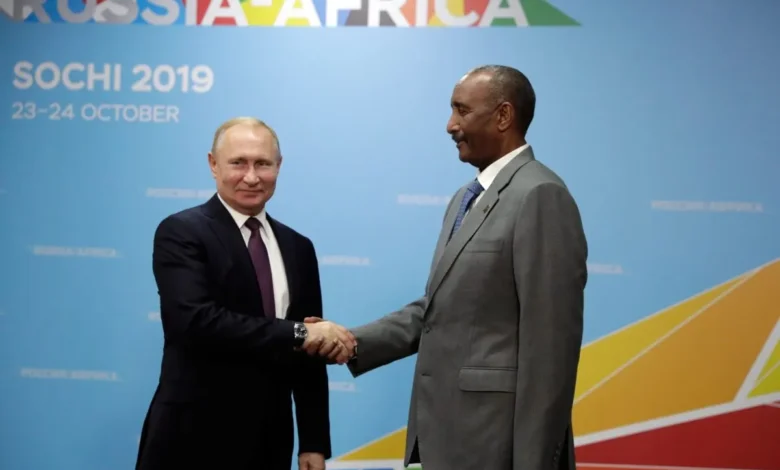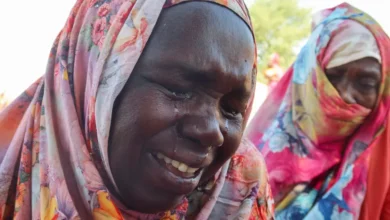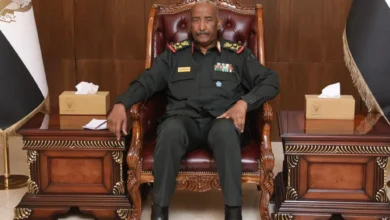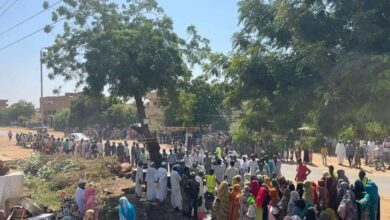Sudan is trying to revive the economy with help from Russia and the UAE

As the death toll continues to rise in the protests against Sudan’s military rulers, the local currency has plummeted after the Central Bank’s flotation exacerbated the country’s deepening economic and political crisis. At least 84 people have been killed since the protests began on 25 October last year, when the military led by General Abdul Fattah Al-Burhan removed Prime Minister Abdullah Hamdok from his position. Young protesters blocked roads across the capital and were bombarded with tear gas. Such heavy-handed tactics are meted out to any demonstrators or innocent bystanders unlucky enough to meet police officers on the street.
“The officers released tear gas inside my mosque, forcing me to break windows to escape,” explained young Imam Mohammed Yusuf. “They stole mobile telephones before leaving.”
The unprovoked attack is indicative of the sharp increase in violence by the security forces and the general unrest in Sudan’s major cities. The military takeover in October has been dubbed “the Palace Sit-In” and resulted in a unified agreement by former militia members from the Juba Peace Agreement, Islamic and Sufi groups and various tribes to take power from the Communist and Baathist elements of the Freedom and Change Movement.
Sudan’s military seized power and arrested Prime Minister, Abdalla Hamdok – Cartoon [Sabaaneh/Middle East Monitor]
Resistance Committees believed to be offshoots of the Communist Party are now among a group of organisations spearheading the nationwide protests. However, the resistance and level of participation appears to be waning as sections of the general public express their frustration. “We can’t support the resistance movements or the army,” said one local resident in Khartoum. “Both groups have failed Sudan.”
International efforts have failed to bring the army and the protest movement led by the Freedom and Change Movement to the negotiating table. The movement lost its moral advantage over the army when four members were accused of corruption: Wadi Saleh, Salah Mana, Ehab El Tayeb and Mohammad Al-Faki were part of a task force working to dismantle the political and financial networks of former President Omar Al-Bashir. The men are accused of misusing confiscated property from the former ruling, National Congress Party. Three of them remain in jail after Al-Burhan refused to allow them to resume their work with the suspended task force.
In the past three weeks, Sudan’s military leaders General Al-Burhan and his deputy Mohammed Hamdan have made two important trips, to Russia and the UAE, seeking economic assistance. After the highly publicised meetings speculation emerged that secret agreements may have been struck with the host countries. The most widely circulated rumour surfaced on Monday, claiming that Russia’s mercenary Wagner Group is operating in Sudan. Representatives of the US, Britain and Norway wrote in a piece published in a Sudanese newspaper that the group with ties to Moscow “spreads disinformation on social media and engages in illicit activities connected to gold mining.” This was denied swiftly by Hamdan.
Furthermore, following Russia’s invasion of Ukraine, Hamdan appeared to indicate that Sudan would support Moscow. “Russia has the right to act in the interests of its citizens and protect its people under the constitution and the law,” he said.
Sources with knowledge of Hamdan’s preparation for his visit deny that meeting with the Russians was a geopolitical show of strength for Moscow. They claimed that the offer to supply gold was in exchange for the supply of wheat to Sudan, 35 per cent of the imports of which will be affected by the war between Russia and Ukraine. The meeting planned to follow up on military assistance and a renewal of Sudan’s willingness to consider Russia as a strategic ally in the region. The offer by Hamdan is a repeat of the suggestion made by Al-Bashir who, in 2018, explained that he had invited Russia into the Red Sea region because he wanted to obviate the threat of the US invading Sudan. This was after he became disenchanted with attempts to lift the economic sanctions imposed on Khartoum by Washington.
History may have repeated itself, but the world is a different place to when Sudan’s government led by the Communists and Baathists had poor relations with the UAE. With the UAE calling for the restoration of a civilian-led transitional government, Abu Dhabi stressed the need to stabilise Sudan as soon as possible. It appeared that the preferred route as far as the Emiratis are concerned is to support military rule.
After Al-Burhan’s meeting with the UAE’s Crown Prince Mohammed Bin Zayed it was confirmed by Sudan’s foreign minister that an “agreement has been reached between the two governments and the private sector in the two countries to support Sudanese banks with significant amounts, enabling them to play their role in developing the Sudanese economy.” However, how this financial support will come about was unclear.
With more demonstrations planned and the political problems far from over, it appears that the military’s immediate priority is to concentrate on the economic affairs of the country, in an attempt to get as much genuine support from the Gulf and from Moscow in an effort to revive Sudan’s ailing economy.





